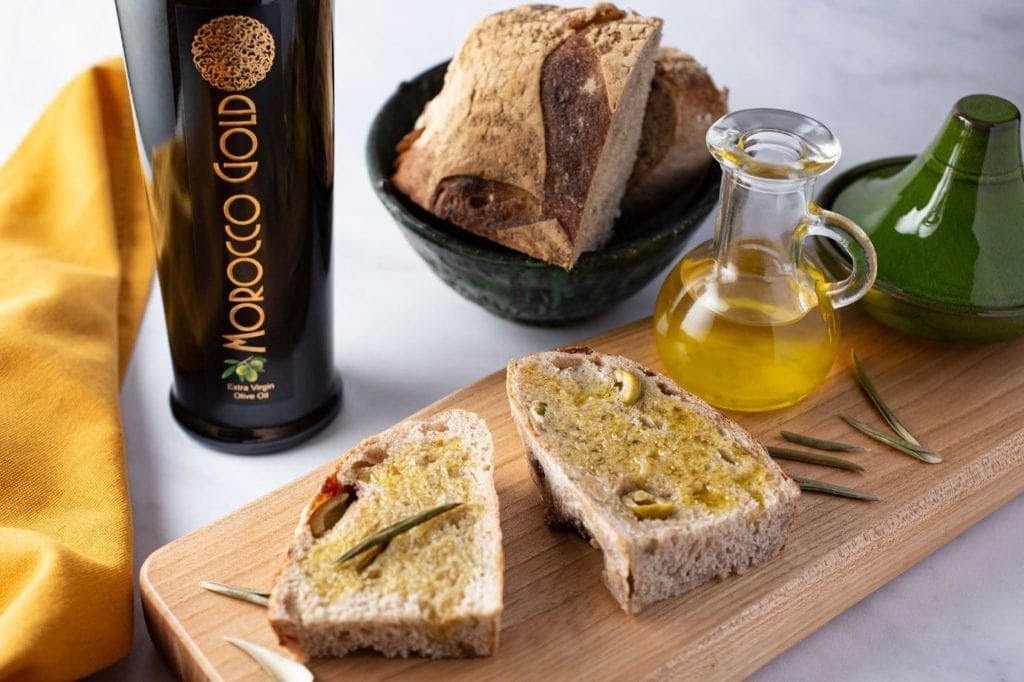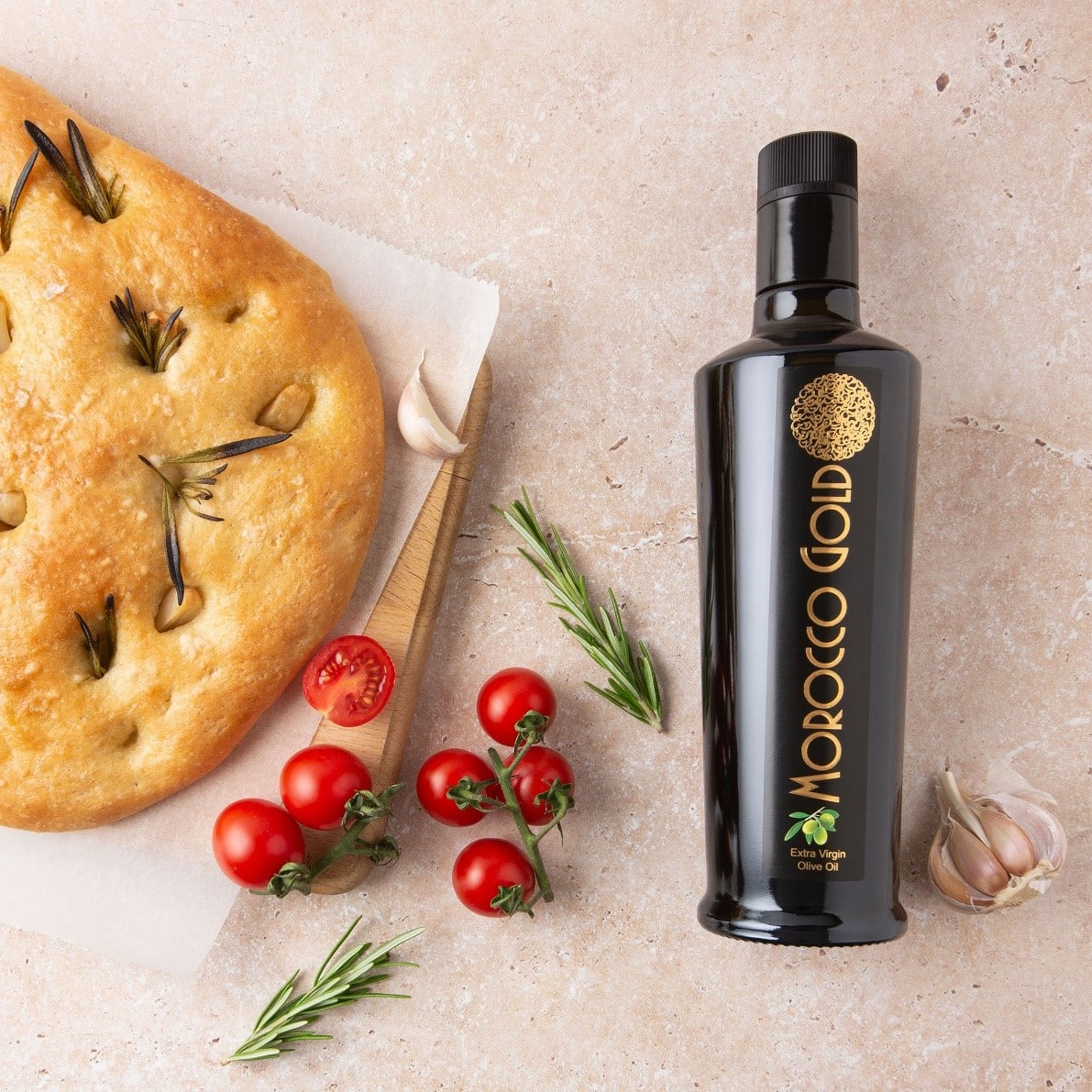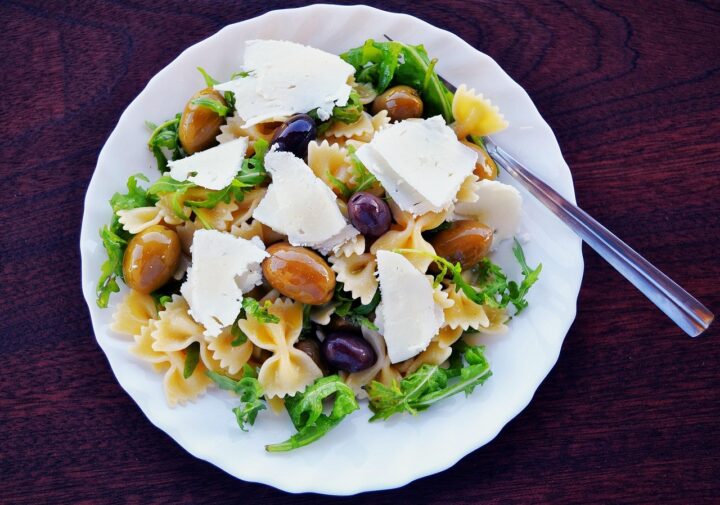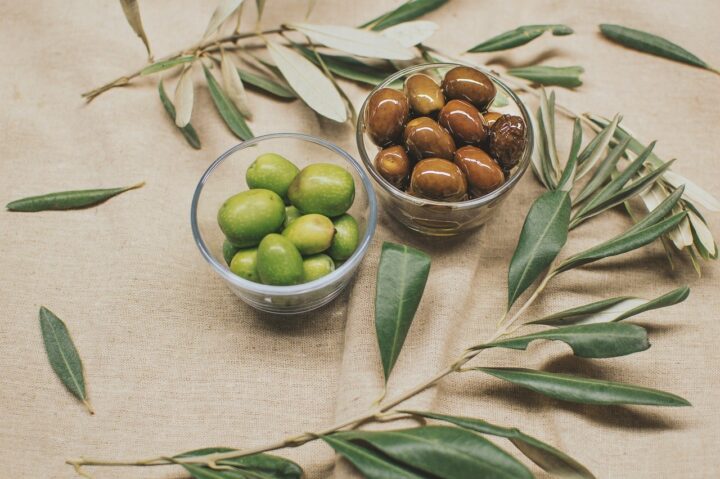Extra Virgin Olive Oil Vs Butter: Which Is Better For Heart Health
Updated August 27th 2024

Summary
Contents
- Extra Virgin Olive Oil Vs Butter – The Great Debate
- Understanding The Importance Of Healthy Fats Like Extra Virgin Olive Oil
- Extra Virgin Olive Oil vs Butter Which is Better for Heart Health
- Extra Virgin Olive Oil (EVOO) As A Substitute For Butter In Baking
- How do I substitute olive oil for butter in cakes and other baked goods?
- Benefits of Extra Virgin Olive Oil
- Benefits of Butter
- The Nutritional Content of Olive Oil
Extra Virgin Olive Oil Vs Butter – The Great Debate
If you’re a health-conscious foodie or a dedicated advocate for heart health, you’ve likely pondered the age-old debate: extra virgin olive oil versus butter. Which one truly wins the heart-health crown? With many of us striving to make smarter dietary choices, understanding the impact of these two fats on our cardiovascular well-being is paramount. In this blog post, we’ll explore the benefits and drawbacks of extra virgin olive oil and butter, offering insights that can help you make informed decisions in your quest for better health.
Understanding The Importance Of Healthy Fats Like Extra Virgin Olive Oil
Fats have often been labelled as dietary villains, but not all fats are created equal. Healthy fats are essential for our body, playing crucial roles in energy production, nutrient absorption, and hormone regulation. Extra virgin olive oil and butter, though distinct in their properties, both fall under the fat category. However, their effects on heart health differ significantly.
Monounsaturated fats, abundant in EVOO, are known for their heart-healthy properties. They help reduce bad cholesterol levels and are associated with a lower risk of heart disease. These fats also provide essential fatty acids that the body cannot produce on its own.
Saturated fats, predominant in butter, have a different impact on heart health. Excessive intake of saturated fats can elevate LDL cholesterol levels, a key risk factor for heart disease. Moderation is crucial when incorporating butter into a heart-healthy diet.
We have discussed many times the health benefits of taking extra virgin olive oil as part of a Mediterranean diet, also taking your extra virgin olive oil on its own as part of a daily routine. But how else can you include extra virgin olive oil (EVOO) into a healthy lifestyle.
Extra Virgin Olive Oil vs Butter Which is Better for Heart Health
Heart health is a priority for many of us, and the choices we make in our kitchens can have a significant impact. One common debate centres around two popular fat sources—extra virgin olive oil and butter. Which one is better for your heart? This blog post will break down the benefits and drawbacks of both, providing you with valuable insights to make an informed decision.
Impact on Cholesterol Levels
Research shows that monounsaturated fats, like those found in extra virgin olive oil, can lower LDL (bad) cholesterol levels while maintaining HDL (good) cholesterol. This balance is essential for reducing the risk of heart disease.
Butter, which is high in saturated fats, can increase LDL cholesterol levels. High LDL cholesterol is a known risk factor for heart disease, making it less favourable for those focused on heart health.
Antioxidants and Heart Health
Extra virgin olive oil is packed with antioxidants, particularly polyphenols, which have anti-inflammatory properties. These antioxidants help protect your heart by reducing inflammation and preventing the oxidation of LDL cholesterol, a key factor in the development of heart disease.
Butter contains some antioxidants, but its benefits are overshadowed by its high saturated fat content. While it offers some nutritional value, it doesn’t provide the same heart-protective properties as extra virgin olive oil.
Extra Virgin Olive Oil (EVOO) As A Substitute For Butter In Baking
One common concern about extra virgin olive oil is its smoke point, which is lower than some other oils. However, it is still suitable for most cooking methods, including sautéing and baking. The rich flavour adds depth to dishes, making it a versatile choice in the kitchen.
The antioxidants and nutrients in extra virgin olive oil remain stable at moderate cooking temperatures, allowing you to enjoy its benefits even when used in cooking.
When it comes to baking, it’s easy to default to butter as the standard ingredient. However, did you know that extra virgin olive oil (EVOO) makes for a healthier and equally tasty substitute? Not only does it provide a unique and subtle flavor to baked goods, but it is also lower in saturated fat and higher in heart-healthy monounsaturated fat compared to butter. When choosing an olive oil substitute, opt for extra virgin olive oil (EVOO). This type of oil is made by cold-pressing the olive fruit without the use of chemicals or heat, preserving its antioxidants and nutrients. Moreover, studies have found that adding extra virgin olive (EVOO) oil to your diet can lead to a multitude of health benefits, including improved heart health, reduced inflammation, and enhanced brain function.
More and more cakes and other baked desserts can be made with extra virgin olive oil (EVOO), instead of butter. Home bakers, too, are increasingly turning to extra virgin olive oil (EVOO) instead of butter for cakes, brownies and more.
Swapping extra virgin olive oil (EVOO) for butter reduces saturated fat. Plus, high quality extra virgin olive oil (EVOO) like Morocco Gold adds a wonderful, nuanced flavor to baked goods and keeps them moist. Extra virgin olive oil (EVOO) also contributes to a special, textured “crumb.” Here are some useful tips on baking with extra virgin olive oil (EVOO).
How do I substitute olive oil for butter in cakes and other baked good?
As a general rule of thumb, substitute three-quarters of the butter in a recipe with extra virgin olive oil. In other words: If a baking recipe calls for a stick of butter (8 tablespoons), for example, use 6 tablespoons of extra virgin olive oil (EVOO) olive oil. If the recipe uses melted butter, substitute the extra virgin olive oil (EVOO) for the butter at three-quarters of the amount. Here is a handy conversion chart:
| BUTTER | OLIVE OIL |
|---|---|
| 1 TEASPOON | ¾ TEASPOON |
| 1 TABLESPOON | 2-¼ TEASPOONS |
| 2 TABLESPOONS | 1-½ TABLESPOONS |
| ¼ CUP (1/2 stick) | 3 TABLESPOONS |
| ½ CUP (1 stick) | ¼ CUP + 2 TABLESPOONS |
| ⅔ CUP | ½ CUP |
| ¾ CUP | ½ CUP + 1 TABLESPOON |
| 1 CUP (2 sticks) | ¾ CUP |
| 2 CUPS (4 sticks) | 1-½ CUPS |
If a recipe calls for vegetable or canola oil, can I use extra virgin olive oil instead?
Definitely, just use the extra virgin olive oil (EVOO) on a one-for-one basis. If a recipe, say, calls for half a cup of vegetable oil, use the same amount of extra virgin olive oil. Your cake and other baked goods will benefit from the fuller, delicious flavor.
Can I use any type of olive oil off the grocery shelf in baking?
Not if you want to improve the flavor of your baked good. Use a high-quality extra virgin olive oil (EVOO) that tastes good. Only use an extra virgin olive oil (EVOO) that you enjoy eating on salads, as a bread dip, etc. If you don’t particularly like the taste of a highly processed olive oil, why sully your baking with it. As the old saying goes:
‘Never cook with a wine you wouldn’t want to drink.’
Old Proverb
Benefits of Extra Virgin Olive Oil
- Rich in Antioxidants:
Extra virgin olive oil contains polyphenols, powerful antioxidants that combat oxidative stress and inflammation, known contributors to heart disease.
- Improves Cholesterol Levels:
Studies show that EVOO helps increase levels of HDL (good) cholesterol while reducing LDL (bad) cholesterol, promoting a healthier lipid profile.
- Anti-Inflammatory Properties:
The oleocanthal compound in EVOO mimics the effects of anti-inflammatory drugs, reducing chronic inflammation that can lead to heart disease.
Butter – A Traditional Favorite
Butter, beloved for its rich taste, has been a dietary mainstay for centuries. Made from churning cream, it contains saturated fats that have been under scrutiny for their impact on heart health. Despite its reputation, butter also offers certain benefits.
Benefits of Butter
- Source of Vitamins:
Butter contains fat-soluble vitamins like A, D, E, and K, essential for various bodily functions, including vision and skin health.
- Conjugated Linoleic Acid (CLA):
CLA, found in butter, has been linked to potential health benefits such as improved metabolism and reduced body fat.
- Natural Product:
Butter is a natural whole food, free from the additives and preservatives found in many processed spreads.
Drawbacks of Butter
- High in Saturated Fats:
Butter’s high saturated fat content can raise LDL cholesterol levels, increasing the risk of heart disease.
Caloric Content:
Like EVOO, butter is calorie-dense, and excessive consumption can lead to weight gain and related health issues.
The choice between extra virgin olive oil and butter ultimately depends on your health goals and lifestyle. For heart health advocates and nutrition enthusiasts, extra virgin olive oil stands out as the superior choice due to its numerous cardiovascular benefits. However, butter can still have a place in a balanced diet when consumed in moderation. By making informed choices and understanding the impact of these fats on your heart health, you can enjoy a delicious and heart-healthy diet.
Explore our recipes and tips to incorporate more extra virgin olive oil into your meals, and join our community of health-conscious foodies on a journey towards better heart health!
The Nutritional Content of Olive Oil
Extra virgin olive oil is loaded with essential nutrients such as vitamins E and K. Vitamin E acts as an antioxidant, while vitamin K plays a vital role in blood clotting and bone health. Together, these vitamins help maintain a healthy heart.
Olive oil also contains omega-3 and omega-6 fatty acids, essential for reducing inflammation and maintaining cardiovascular health. These nutrients make extra virgin olive oil a solid choice for those prioritizing their heart health.
Conclusion
In the debate between extra virgin olive oil and butter, extra virgin olive oil emerges as the heart-healthy champion. Its monounsaturated fats, antioxidants, and anti-inflammatory properties make it a superior choice for those focused on cardiovascular health.
Butter, while rich in flavor and nutrients, should be consumed in moderation due to its high saturated fat content. By balancing your use of these fats, you can enjoy the best of both worlds while prioritizing your heart health.
To explore more about healthy fats and how to incorporate them into your diet, consider consulting with a nutritionist or dietitian. Their expertise can help you make informed choices that benefit your overall well-being.






